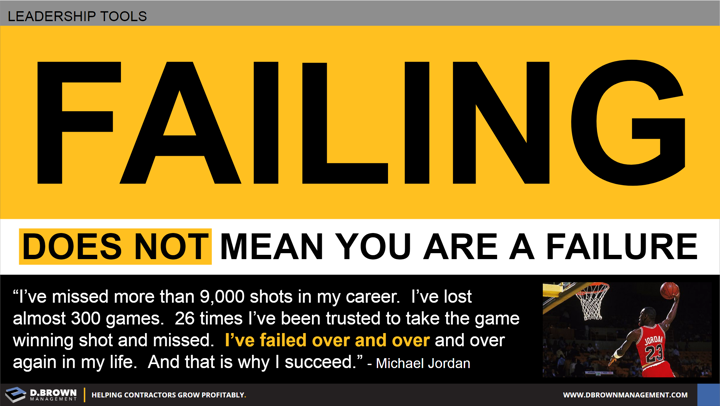Maximum benefit comes from pushing the outer limits of the learning zone into the panic zone where you will fail.
Learn from Failure - Black Box Thinking
What is critical is to NEVER consider yourself a failure just because you fail. You can never allow your self-worth to get tied up into either your successes or failures. You must ground your joy and self-worth in the journey and the people who are on that journey with you.
From a coaching standpoint, know that most people will associate failure with being a failure. Your role as a coach requires that you help people separate those two things in their minds, always reminding them of the benefits of learning from failure.
Providing extremely specific and rapid feedback -- while coaching that this is information only -- is the key to building people faster.
How comfortable are you pushing yourself to failure?

